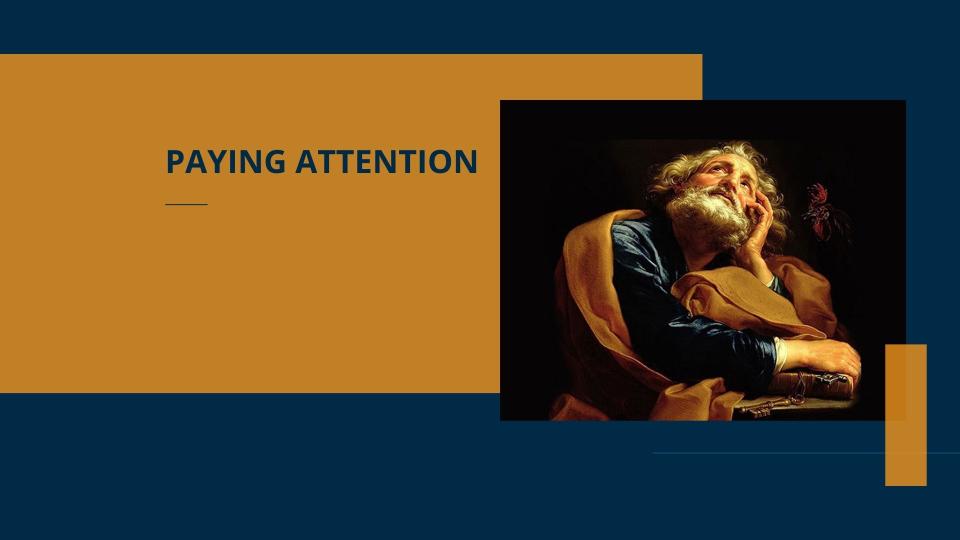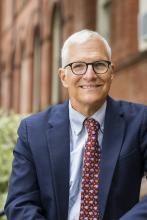Students can find the transition to theological study challenging for a variety of reasons. Some may have been out of school for a while and worry that they’ve lost their academic edge. Some may hail from a Science, Technology, Engineering and Math background and find the disciplines of the humanities—analyzing texts, writing essays, crating arguments—to be a new and challenging way to think. Reading the Bible in an academic setting often feels very different from reading it devotionally or in church, and this can be disorienting.
The real challenge involved in theological study, though, is God. You may be tired of hearing by now that the word “theology” comes from the Greek theos and logos, “God” and … well, how should we translate logos anyway? Word, reason, discourse, utterance, thought, rational structure. Logos can mean any or all these things. In any event, theology is supposed to be a kind of disciplined thinking about God and the things of God.
Just how are we supposed to manage that?
As introductory theological textbooks never tire of pointing out, God—the almighty Creator, the sum of all perfections, the transcendent “Love that moves the sun and the other stars,” in the beautiful words of Dante—is not available for our inspection like other things we might wish to know about. We cannot put God under a microscope, nor bombard the Trinity with electrons in a mass spectrometer. God is, by definition, not a “thing.” God is … God. Even if we allow for a certain likeness of God to creation, we also have to reckon with radical differences between the two. Indeed, in the year 1215, a major church council declared that “between Creator and creature there can be noted no similarity so great that a greater dissimilarity cannot be seen between them” (Fourth Lateran Council, constitution no. 2).
At this point, the theologian is likely to launch into their prepared lectures about the knowledge of God, the relation of reason and revelation, and issues of proper theological method. For those of you enrolled in Justin Stratis’s Systematics I course, prepare to have your minds blown!
But for the remainder of this blog post I’d like to take a different tack. Instead of talking about the knowledge of God as a question for dogmatics, I’d like to reflect on the personal and spiritual disciplines involved in studying theology, or indeed any other subject. And the best way I know to do that is to introduce you to Simone Weil’s classic essay “Reflections on the Right Use of School Studies with a View to the Love of God.”
For those of you who don’t know her, Simone Weil (1909-1943) was a French philosopher, mystic, anarchist, patriot, political thinker, and unlikely saint. Her work defies easy categorization (which is part of what makes her so stimulating to read). Born into a secular Jewish family, she came to a deep love of Jesus Christ, hesitating to be baptized only because of her keen awareness of the church’s history of violence toward heretics and other outsiders.[1] When Weil was not engaged in political activity, she was a schoolteacher, apparently quite popular with her pupils. She wrote this essay growing out of that experience.
Like the talented writer she was, Weil announces her thesis in the opening lines:
The key to a Christian conception of studies is the realization that prayer consists of attention. It is the orientation of all the attention of which the soul is capable toward God. The quality of the attention counts for much in the quality of the prayer. Warmth of heart cannot make up for it.
What does Weil mean by “attention”? One thing she makes very clear she does not mean is willpower—the sheer concentrated effort involved in study. In an amusing passage, she writes that people commonly confuse attention with a “kind of muscular effort. If one says to one’s pupils: ‘Now you must pay attention,’ one sees them contracting their brows, holding their breath, stiffening their muscles. If after two minutes they are asked what they have been paying attention to, they cannot reply.” Weil remarks that such students have not been paying attention, but merely contracting their muscles and gritting their teeth. Not only is this not much fun, it is ultimately counterproductive.
Rather, truly paying attention to an object or person is a function of our love for that object or person. As Weil writes:
The intelligence can only be led by desire. For there to be desire, there must be pleasure and joy in the work. The intelligence only grows and bears fruit in joy. The joy of learning is as indispensable in study as breathing is in running. Where it is lacking there are no real students, but only poor caricatures of apprentices who, at the end of their apprenticeship, will not even have a trade.
Weil’s “attention” is equal parts patience, receptivity, and self-abandonment in love. It especially means letting go of the need for results—which for students, usually means getting a good mark or earning praise from their teachers. Quite the contrary, Weil insists rather passionately that our failures in study can be good for us—the math problem we just can’t solve, the translation exercise that defeats our skills. Failure teaches humility, reminding us that the object of our attention is more important than our paltry efforts at understanding. Weil was a rather uncompromising idealist. I’m afraid she would have had little patience for the “measurable learning outcomes” discourse that pervades contemporary higher education.
Attention (in French, l’attention) means waiting (l’attente). It means setting aside our ego, projections, and fantasies long enough so that it’s no longer our own voice we are hearing, but the voice of the other. This “other” may be an intellectual problem or puzzle, but it may also be another human being. Weil has some eloquent things to say about just how hard it is to really pay attention to other people in their specific need and suffering. She writes: “Not only does the love of God have attention for its substance; the love of our neighbor, which we know to be the same love, is made of this same substance. Those who are unhappy have no need for anything in this world but people capable of giving them their attention.” This is a typical bit of Weil hyperbole. Surely those who are unhappy need more than just people capable of giving them attention. But they do need that, and it’s good that we should be reminded of it.
Yet even aside from the moral dimensions of Weil’s work, what I’d like to hold up is the possibility of delight in study to which she invites us. God is the biggest challenge in theological study. But God is also the One who loved us into being, and who summons us to love both Him and our neighbours. To study God, pay attention to God, delight in God—what could be more thrilling than that?
So work hard in your classes. Wrestle with Scripture and doctrine and write good essays. But don’t confuse these most excellent means with the End they serve, namely, God. Spending time with God in the company of some fellow learners and lovers is why you’re here. Welcome to Wycliffe.
[1] There are many introductions to Weil’s thought available. Two I would recommend are Francine du Plessix Gray’s short biography Simone Weil (Penguin, 2001) and Alan Jacobs’s The Year of Our Lord 1943: Christian Humanism in an Age of Crisis (Oxford, 2018), which treats Weil in company with other Christian intellectuals during World War II.






